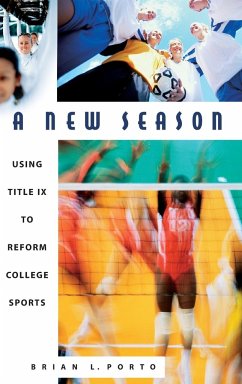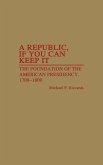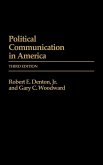This book demonstrates how colleges might retain threatened varsity programs and expand sports opportunities for women students if they replaced the current commercial model with one that emphasizes student participation. This would benefit the college students who play varsity sports, instead of benefiting the coaches, athletic directors, or over-generous boosters who dominate many programs. In Title IX, the federal law prohibiting sex discrimination in education, schools have been handed a golden opportunity to bring fiscal sanity and academic integrity back to their campuses by once again making students, and not money, the focal point of athletic policies. This book demonstrates how colleges might retain threatened varsity programs and expand sports opportunities for women students if they replace the current commercial model with one that emphasizes student participation. This would benefit the college students who play varsity sports, instead of benefiting the coaches, athletic directors, or over-generous boosters who dominate many programs. Reformist tinkering has done little to solve the deep-seated problems plaguing college sports. Porto argues that replacing the enormous commercial pressures corrupting college sports with a student-oriented participation model can solve these problems. Fiscal sanity, academic integrity, personal responsibility, and gender equity in college sports are possible. Faculty members can lead a broader movement to reclaim their institutions from the college sports industry. This book shows how college sports may once again be the integral part of the educational program the NCAA advertises them to be-and that they should be.
Hinweis: Dieser Artikel kann nur an eine deutsche Lieferadresse ausgeliefert werden.
Hinweis: Dieser Artikel kann nur an eine deutsche Lieferadresse ausgeliefert werden.








